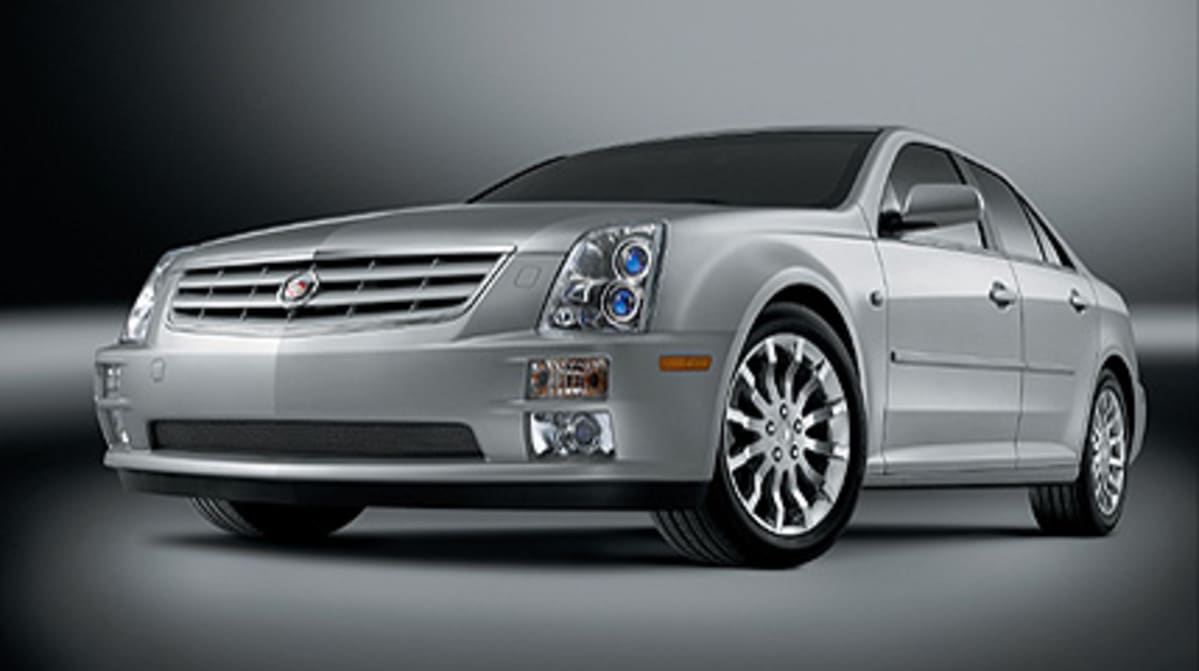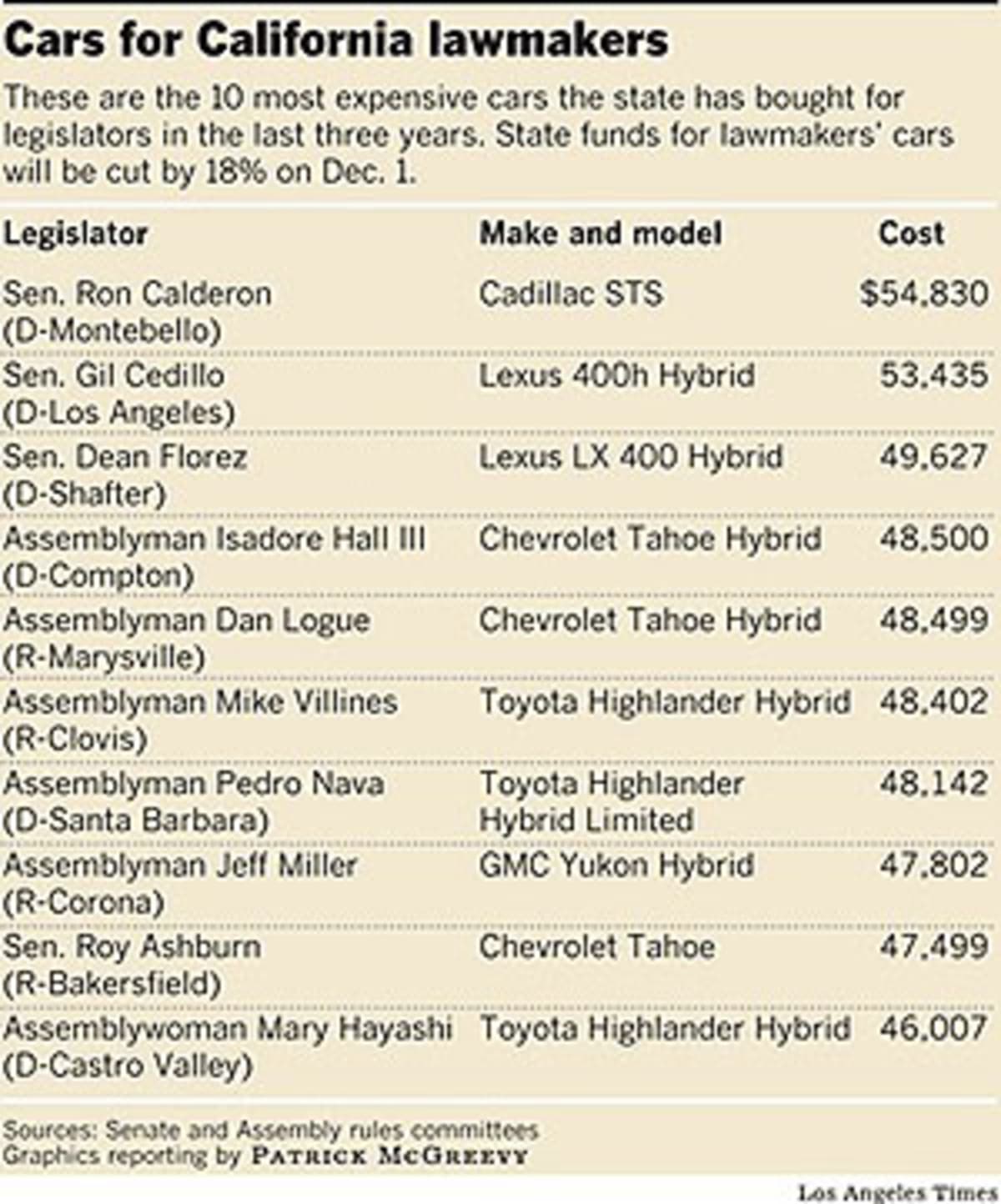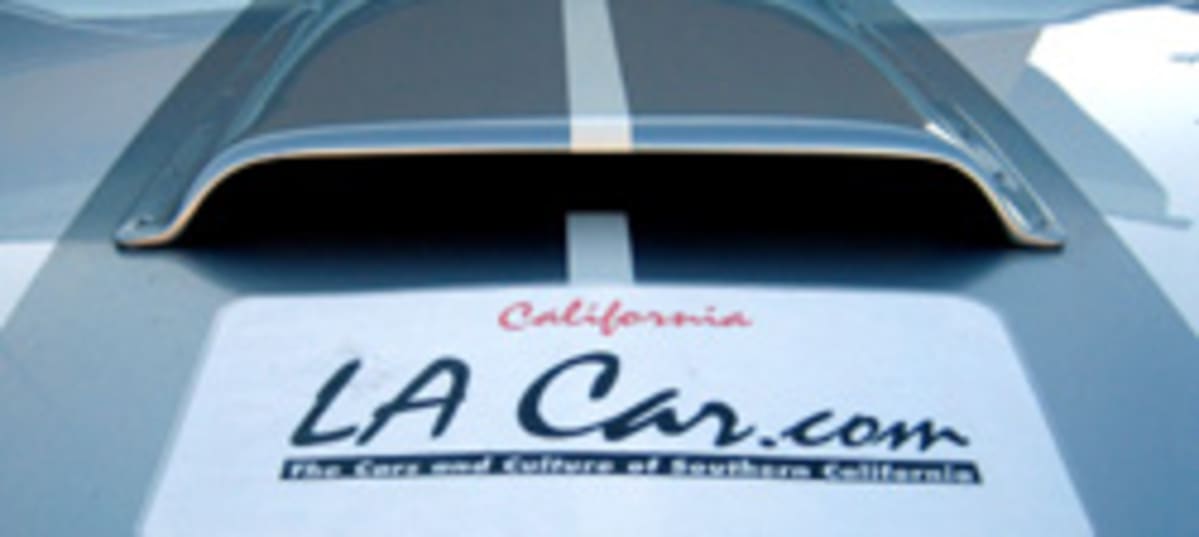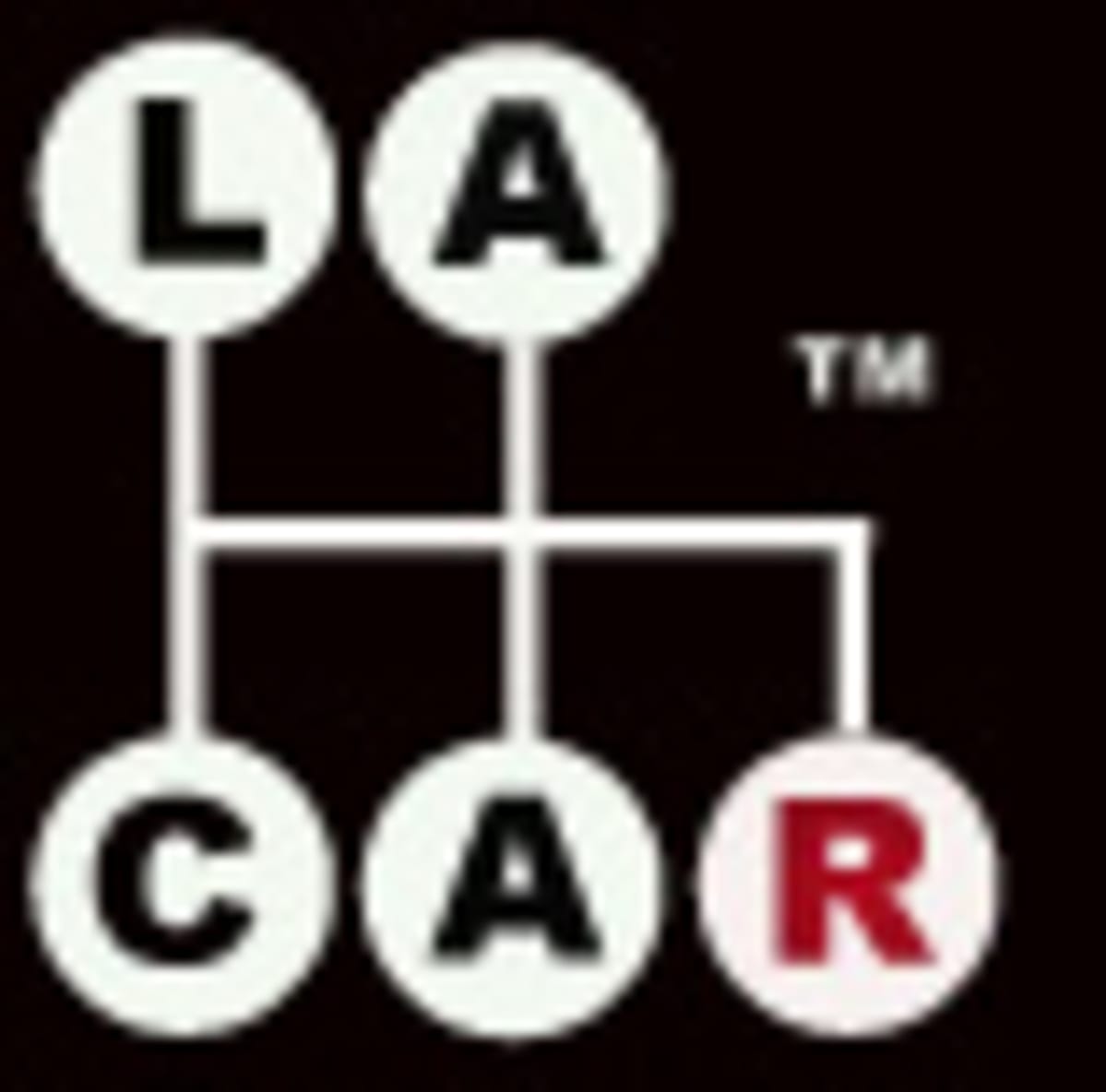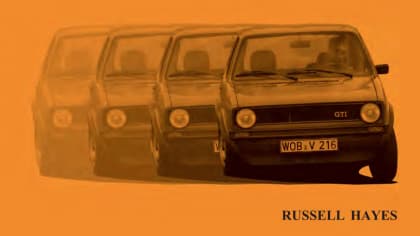BACK SEAT DRIVING - JULY 2009
This article is from our archives and has not been updated and integrated with our "new" site yet... Even so, it's still awesome - so keep reading!
Published on Tue, Jul 7, 2009
By: The LACar Editorial Staff

Â
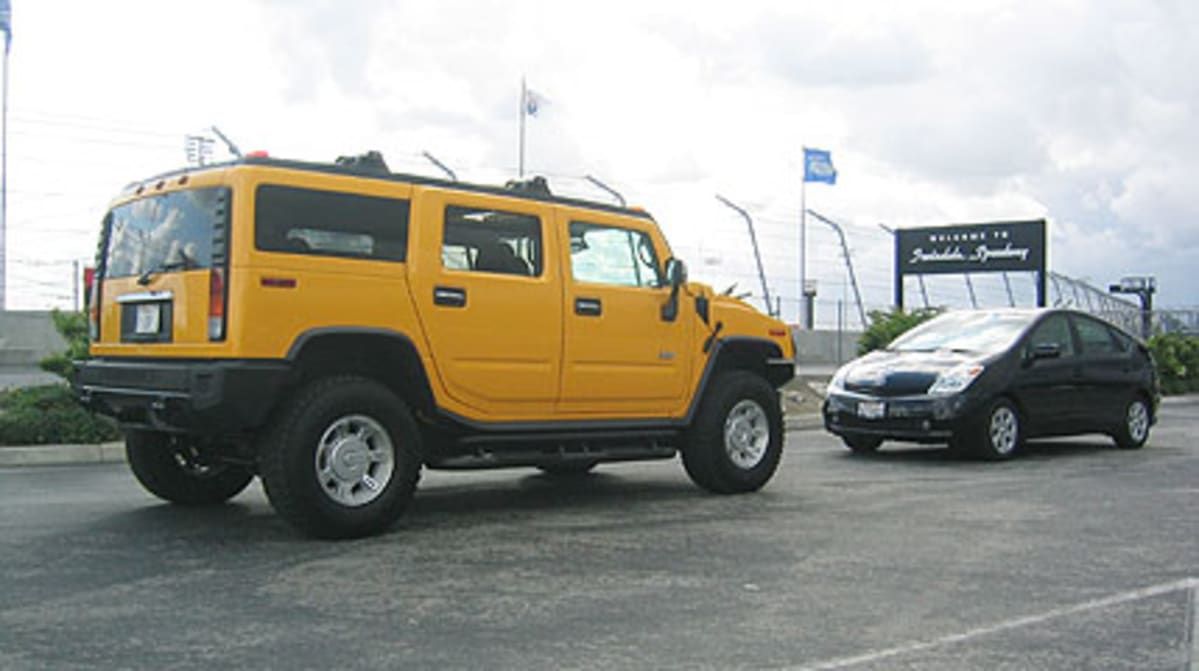
NAKANO: BACK SEAT DRIVING MTA Approves Toll Rates for Single Occupant Carpool Lanes Not too long ago, one had to shell out twenty big ones in order to use the California carpool lanes without a carpool. $20,000 (or a tad more) got you a Honda Civic Hybrid, Honda Insight or Toyota Prius - the only vehicles to qualify for single-occupancy access into the carpool lanes under California's hybrid exception law. It was a steep price to pay, and it got some thinking that it's more cost effective to take your chances with a traffic citation, which costs $348 the first time around. The Los Angeles County Metropolitan Transportation Authority's Board of Directors just made it even cheaper this month - approving toll rates to be used on portions of the I-10/I-110 ExpressLanes. It followed a series of public hearings that gathered public input on the tolling pricing proposal to be implemented as part of the agency's Congestion Reduction Demonstration Project (ExpressLanes) that will debut late next year. The new adopted toll rates will range from 25 cents to $1.40 a mile for solo drivers using the ExpressLanes. Tolls will go into effect with the opening of the ExpressLanes in December 2010. Staff estimates that the average trip on the I-10 ExpressLanes will be nine miles with an average toll of $6 depending on demand and the average trip on the I-110 ExpressLanes is five miles for an average toll of $5. The annual revenue estimated from the tolls is approximately $21 million with the net toll revenues being reinvested in the corridor where they are generated for transit and carpool lane improvements, according to the MTA's Marc Littman. "Adoption of the toll rates and toll policy will now move forward as part of the draft environmental document which is expected to be circulated this Fall." In partnership with Caltrans, Metro is embarking on a one-year demonstration program that will convert existing carpool lanes on the I-10 (El Monte Busway) and the I-110 (Harbor Freeway Transitway) freeways to high-occupancy toll lanes. Present day carpoolers, vanpoolers, motorcycles, and public transit users will not be charged a toll to use the lanes. Solo drivers, who currently are not allowed to use the lanes, will be allowed to use the ExpressLanes by paying a toll. No tolls will be charged in mixed-flow traffic lanes. "The purpose of the demonstration is to squeeze more capacity out of crowded freeways in a region where building new freeways is almost impossible because land is not available and there is a lack of funding for new construction," says Rick Jager of the MTA "The project will provide the opportunity for individuals to choose better transportation alternatives and provides a choice for solo drivers to shift to more convenient express transit options that will serve the corridor route." "The toll price will be variable depending on traffic flow, says Jager. "The goal is to ensure vehicles in the ExpressLanes travel at a minimum of 45 miles per hour. It will be cheaper to access the ExpressLanes during non-peak hours, or opt for public transit, carpools and vanpools and pay no tolls." The MTA is also considering implementing an ExpressLanes Rewards Program to provide a toll credit or transit credit of $5 to frequent transit riders on the I-10 and I-110 ExpressLanes. To earn the $5 credit, transit riders would have to ride 16 round-trips during the peak period over a 30 day period. Transit riders would choose to apply the credit to their toll account or transit fare. The $5 credit would expire after 60 days. Frequent transit riders could earn up to $60 toll/transit credit over the one-year demonstration period. Soon, you'll be able to take your gas-guzzling Hummer in the carpool lane without a carpool. There, you can drive your baby alongside those pesky eco-friendly hybrids that have been able to enjoy this privilege exclusively all this time. Â Â Â Â
Â
Â
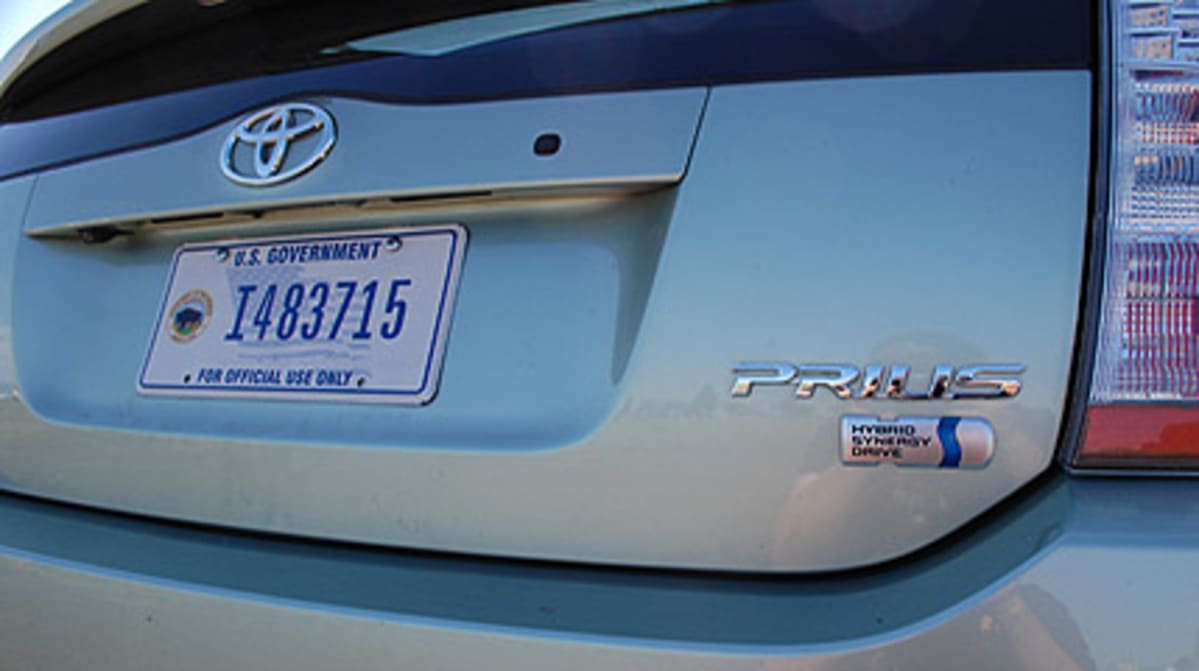
NAKANO: BACK SEAT DRIVING
The Feds at Tule Lake
If you look closely at the photograph above, you'll notice something you don't
see everyday: A United States Government vehicle that's not manufactured by Ford, General
Motors or
Chrysler. This one happens to be a Toyota Prius - and it belongs to the U.S.
Fish & Wildlife Service.
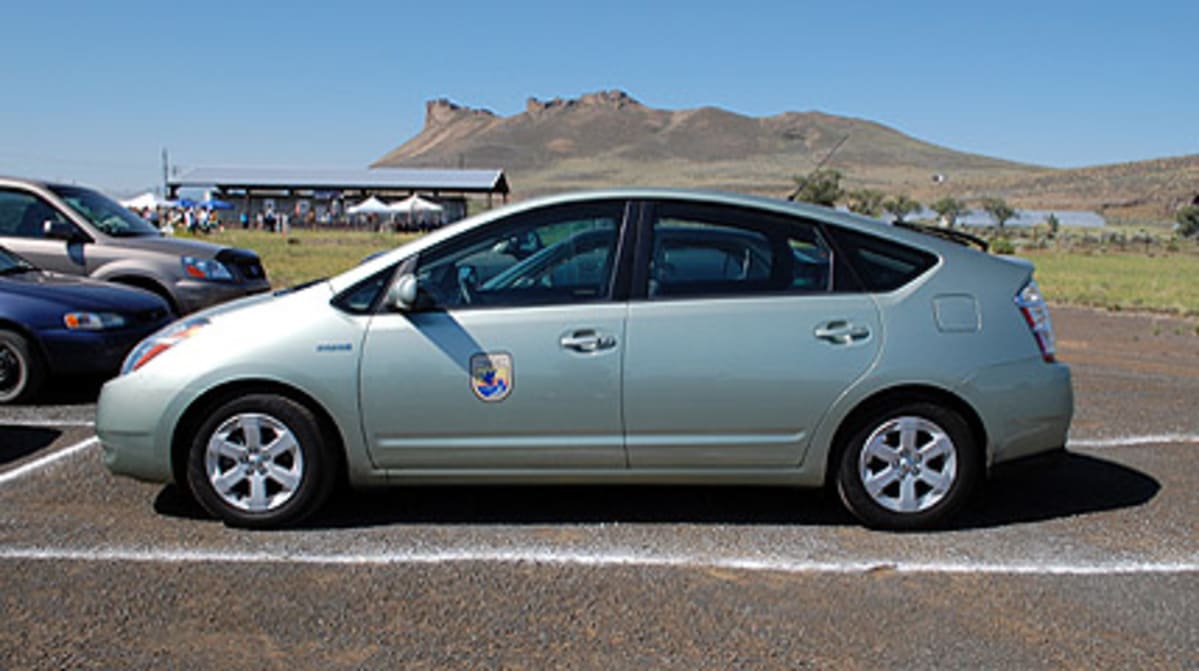
The U.S. Government Prius was spotted at Tule Lake, California, over the Fourth of July weekend. The occasion was the dedication of the Tule Lake Segregation Center National Monument - one of nine new World War II Valor in the Pacific National Monuments designated via executive order by George W. Bush just before he left office. Joining in on the dedication were the National Park Service, representatives from the Lava Beds National Monument, the Manzanar Historic Site, the Fremont-Winema National Forest, the Shaw Historical Library, the Modoc National Forest, Cal Trans District 2, the Klamath Basin Refuge Association, the Klamath County Museum, the Tulelake Chamber of Commerce, and over 400 pilgrims - including approximately 50 former inmates - attending the 17th Tule Lake pilgrimage. Tule Lake was one of 10 War Relocation Authority (WRA) camps during World War II built to incarcerate Americans of Japanese ancestry. In 1943, it was converted into the Tule Lake Segregation Center, to hold those who protested their incarceration. Tule Lake was the most controversial of the ten War Relocation Authority WRA camps. It was the largest of the camps, holding 18,000 Japanese Americans, and the only one turned into a high-security segregation center, ruled under martial law and occupied by the Army. Tule Lake was the last of the WRA camps to close, in March of 1946. For more information about Tule Lake, click here    Â
Â
Â
NAKANO: BACK SEAT DRIVING
GM Emerges From Bankruptcy
DETROIT - July 10, 2009 - The new General Motors Company began operations today with a new
corporate structure, a new balance sheet, and a vow to make
the customer the center of everything the new GM does.
"Today marks a new beginning for General Motors, one that will allow every
employee, including me, to get back to the business of designing, building and
selling great cars and trucks and serving the needs of our customers," said
Fritz Henderson, president and CEO. "We are deeply appreciative for the support
we have received during this historic transformation, and we will work hard to
repay this trust by building a successful new General Motors."
"One thing we have learned from the last 100 days is that GM can move quickly
and decisively," said Henderson. "Today, we take the intensity, decisiveness and
speed of the past several months and transfer it from the triage of the
bankruptcy process to the creation and operation of a new General Motors.
"Business as usual is over at GM," said Henderson. "Today starts a new era for
General Motors and everyone associated with the company. Going forward, the new
General Motors is fully committed to listening to customers, responding to
consumer and market trends, and empowering the people closest to the customer to
make the decisions. Our goal is to build more of the cars, trucks, and
crossovers that customers want, and to get them to market faster than ever
before."
Committed to Product
"A successful auto company needs to focus on both the cost and the revenue sides
of the business," said Henderson. "Success on the revenue side means building
the stylish, high-quality, fuel-efficient vehicles that customers want - and
getting them to market fast."
Despite the recent downturn, GM has maintained its cadence of new
products. In the U.S., for example, the Chevy Camaro has past the Mustang to lead its segment, while the new Chevy Equinox, Cadillac SRX, and Buick
LaCrosse are earning strong initial reviews. Later this year, the Cadillac CTS
Sport Wagon and GMC Terrain debut, followed next year by the Chevy Volt, Chevy
Cruze and Cadillac CTS Coupe.
GM also has moved to develop a full range of energy-saving
technologies, including advanced internal combustion engines, biofuels, fuel
cells, and hybrids. The company also vows to lead in the development of
extended-range electric vehicles, with its first model, the Chevy Volt,
currently undergoing road testing and scheduled to launch in 2010. The new GM is
also taking steps to make advanced battery development a core competency, and
expects to make additional announcements on this matter late this summer.
"The success of our recent launches and the exciting new vehicles and
technologies we have in the pipeline are evidence of our ongoing commitment to
excel at everything we do," said Henderson. "Our goal is to make each and every
General Motors car, truck and crossover the best-in-class."
Stronger Brands and Dealers
As part of its reinvention, the new GM has also focused its resources on four
core brands and a stronger, more effective dealer network.
General Motors' core brands - Chevrolet, Cadillac, Buick and GMC - will have a
total of just 34 U.S. nameplates by 2010. This emphasis on fewer, better entries
will enable the new GM to put more resources into each nameplate, resulting in
better products and stronger marketing.
In May, the company accelerated its dealer consolidation efforts, with the goal
of reducing the number of GM dealers in the U.S. from 6,000 this spring to
approximately 3,600 by the end of next year. Even so, GM will still have the
largest dealer network in the U.S. and GM dealers have committed to continue to
improve the total customer experience for GM customers.
"We're also working on new ways to make car buying more convenient for our
customers, including an innovative new partnership with eBay in California to
revolutionize how people buy vehicles online," Henderson said. "Customers will
be able to bid on actual vehicles just like they do in an eBay auction,
including the option of choosing a predetermined 'buy it now' price. We'll be
testing this and other ideas with our dealers over the next few weeks, and hope
to expand and build upon them in the coming months. In all cases, our goal is to
make the shopping and buying process as easy as possible for GM customers - on
their time and their terms. Stay tuned."
A Pledge to Regain Trust
General Motors Company is primarily owned by the governments of the United
States, Canada and Ontario, and by a trust fund providing medical benefits to
UAW retirees. Specifically, common stock will be owned by:
* U.S. Department of the Treasury: 60.8 percent
* UAW Retiree Medical Benefits Trust: 17.5 percent
* Canada and Ontario governments: 11.7 percent
* The old GM: 10 percent
"We are very appreciative of the support provided by the stakeholders through
the transformation process. Though General Motors Company will not initially be
publicly traded, we will be transparent in our financial and other reporting to
further strengthen trust and confidence," said Henderson. "We expect to take the
company public again as soon as practical, starting next year, and to repay our
government loans as soon as possible. We are required to pay off the loans by
2015, but our goal is to repay them much sooner."
Balanced Balance Sheet
General Motors Company launches with a strong balance sheet, a competitive cost
structure, and a strong cash position, enabling it to compete more effectively
with both its U.S. and foreign-based competitors here in the U.S., and to
continue its strong presence in growing global markets.
The new company acquired old GM's strongest operations and will have a
competitive operating cost structure, partly as a result of recent agreements
with the United Auto Workers (UAW) and Canadian Auto Workers (CAW).
In the U.S., the new GM will be a leaner company. By the end of 2010, the
company will operate 34 assembly, powertrain, and stamping plants, down from 47
in 2008, and capacity utilization is expected to reach 100 percent during 2011.
Overall U.S. employment will decline from about 91,000 at the end of 2008 to
about 64,000 at the end of this year, creating a company sized to respond
to changes in the market, while still retaining the global scope
necessary to develop world-class products and technologies.
The new GM will begin with a stronger balance sheet, including U.S. debt of
approximately $11 billion, which excludes preferred stock of $9 billion, and
could change under fresh-start accounting. In total, obligations have been
reduced by more than $40 billion, representing mostly unsecured debt and the VEBA trust fund that provides medical benefits to UAW retirees. The stronger
balance sheet and lower break-even point will allow the new GM to reduce its
risk, operate profitably at lower volume levels, and reinvest in the
business in the key areas of advanced technology and product development.
GM's subsidiaries outside the United States were acquired by the new company and
are expected to continue to operate normally without any interruption.
A New Way of Doing Business
With the launch of the new General Motors, company leaders will work to change
the culture of the company, making the speed and decisiveness that GM
demonstrated over the past several months the new way of doing business, and
adding an intensified focus on the customer.
Edward E. Whitacre, Jr., who oversaw the creation of the new AT&T, will serve as
chairman of a GM board with a number of new directors. Henderson will continue
as president and chief executive officer, working closely with Whitacre. He also
will take responsibility for GM's operations in North America, eliminating the
GM North America president position.
To speed day-to-day decision-making, two senior leadership forums, the
Automotive Strategy Board and Automotive Product Board, will be replaced by a
single, smaller executive committee, which will meet more frequently and focus
on business results, products, brands, and customers.
Bob Lutz has agreed to join the new GM as vice chairman responsible for all
creative elements of products and customer relationships. Lutz and Tom Stephens,
vice chairman, product development, will work together as a team, partnering
with Ed Welburn, vice president of design, to guide all creative aspects of
design. GM's brands, marketing, advertising, and communications will report to
Lutz for consistent messaging and results. He will report to Henderson, and be
part of the newly formed executive committee.
"I am pleased to announce that we are 'unretiring' Bob Lutz so he can fill this
important position in the new GM," said Henderson. "He has a proven track record
of unleashing creativity in the design and development of GM cars and trucks.
This new role allows him to take that passion a step further, applying it to
other parts of GM that connect directly with customers."
General Motors will also end its regional operating structure, moving decisions
closer to the customer. This eliminates the regional president positions and the
regional strategy boards. Nick Reilly will be named executive vice president of
GM International Operations (GMIO) which will be based in Shanghai.
GM is also removing layers of management - reducing the number of U.S.
executives by 35 percent and overall U.S. salaried employment by 20 percent by
the end of this year - flattening the organization and speeding decision making.
Additional details of the new structure and leadership moves will be
communicated later this month, said Henderson. "These and other actions will
simplify our organizational structure and reduce the level of bureaucracy that,
in the past, has prevented GM from moving faster."
More Direct Communications
Henderson also announced initiatives to open more direct communications between
customers and GM employees at every level. "Beginning next week, we will launch
a 'Tell Fritz' website where customers, or anyone else, can share ideas,
concerns, and suggestions directly with senior management. I will personally
review and respond to some of these communications every day."
Henderson and other General Motors leaders will go on the road regularly to meet
with consumers and others with a stake in the new GM. "In August, we'll begin
regular visits with customers, dealers, suppliers, employees and others - in the
U.S. and abroad - who impact our relationships with customers. We'll be
listening to their ideas, and acting on the ones that will improve our ability
to serve our customers better. And of course, other executives and I will
continue to reach out to customers through our ongoing web and Twitter chats.
"Today we launch the new General Motors, and our promise is simple. We will be
profitable, we will repay our loans as soon as possible, and our cars and trucks
will be among the best in the world," said Henderson. "We recognize that we've
been given a rare second chance at GM, and we are very grateful for that. And we
appreciate the fact that we now have the tools to get the job done.
"To our current customers, we appreciate the confidence that you have placed in
us, and going forward, we'll offer you nothing less than great cars, trucks and
crossovers, with unmatched customer service. To those who have supported us
through this challenging time, we are deeply grateful," said Henderson. "And to
those who have never tried a GM vehicle - or who have tried one and been
disappointed - we look forward to the chance to win your business and earn your
trust."
  Â
Â
Â
Cadillac STS tops the list
NAKANO: BACK SEAT DRIVING
10 Most Expensive Legislator Vehicles Paid by CA Taxpayers
You
may have heard that California is facing a bit of an economic crisis. The state
is suffering from an ongoing fiscal crisis in which it faces a budget shortfall
of at least $11.2 billion, projected to top $40 billion over the 2009-2010
fiscal years. In the meantime, the Los Angeles Times reported on the 10
most expensive vehicles that the state has bought for legislators in the last
three years (see the insert at left).
Some Wiki background on how we got here:
Back in September of 2008 (three months after its due date), Governor Arnold
Schwarzenegger signed the 2008-2009 budget. Worsening financial conditions that
followed left the state with a large shortfall.
A two-thirds vote is required to pass a budget, and in both the original budget
negotiations and in the attempt to revise the budget no political party by
itself had enough votes to pass a budget. The majority Democrats fought to
minimize cuts to programs, while most of the minority Republicans refused to
accept any tax increase. The original budget was put together by Democrats and
some Republicans using spending cuts, internal borrowing, and accounting
maneuvers.
The state had been selling bank-guaranteed short-term notes to get cash, but its
credit rating was lowered in 2009. The state legislature passed a budget in
February 2009 that depended on the voters approving tax extensions and money
redirection into the general fund, which in May the voters did not approve.
Governor Arnold Schwarzenegger then proposed $16 billion in cuts and also
borrowing money from local governments. In the legislature, the Republicans
agreed to lower the income of state employees, but the Democrats resisted these
proposals and suggested increasing fees to be paid by smokers and oil wells.
Neither party agreed to borrowing money from local governments.
Gov. Schwarzenegger ordered mandatory furloughs for state employees. As part of
the furlough, various state offices are closed on the 1st and 3rd Fridays of
every month from February 1, 2009 through June 30, 2010, and are estimated to
save the State $1.3 billion dollars.
Back in Januarya Superior Court Judge ruled that the Governor has emergency
furlough power. On February the 3rd District Court of Appeal in Sacramento said
the appeal to the decision came too late and was incomplete, so judges were
unable to determine if a halt to state furloughs is legally justified. In
addition to the furloughs, the governor initiated other layoffs, reductions and
efficiencies to achieve savings of up to 10 percent.
On April 1, 2009 the state sales and use tax was temporarily increased by one
percentage point. Other state response to the crisis has included mandatory
state employee furloughs and the delay of state tax refund payments.
On July 2, 2009 the state government began issuing IOUs to meet its short term
financial obligations.
In 2009, the California economic crisis became severe as the state faces
insolvency. In June 2009 Gov. Arnold Schwarzenegger said "Our wallet is empty,
ou He called for massive budget
cuts of $24 billion, about 1/4 of the states budget.
  Â
Â
Â
Â
A
JOURNAL OF LOS ANGELES & ITS CAR CULTURE That
was LA Car's subtitle when it started back in 1997. It's original website
address was about five times the size of lacar.com. Since then, La Car
became LA Car. Its subtitle became
Reporting From Car Culture Ground Zero, then From The Heart of Car
Culture, to today's The Cars and Culture of Southern California. At
all times, however, we aimed to chronicle the Southland's automotive spirit - much like
one's own
journal or diary.
LA Car has always been a great source
to come back to from week-to-week, to see what articles and reviews have been
added to our rather staggering database. With Back Seat Driving, a.k.a.
BSD (note the similarity to two well-worn abbreviations, BS and BFD) and Hot
Wires - Hot & Tender News From the Car Culture (co-located with Back Seat
Driving, and updated at least daily), we give you some reasons to
come back more often (all opinions, by the way, are those of the respective
author).
So, go
ahead and bookmark www.lacar.com. We'll be
sure to always provide a link to Hot Wires and the latest Back Seat
Driving blog entry. In the meantime, welcome to the journal and journey from
the heart of the car culture. - Roy NakanoÂ
For
past Blog entries, click the following:
June 2009
May 2009
April 2009
March 2009
February 2009
January 2009
December 2008
November 2008
October 2008
September 2008
August 2008
July 2008
June 2008
May 2008
April 2008
March 2008
February 2008
January 2008
December 2007
November 2007
October 2007
September 2007
August 2007
July 2007
June 2007
May 2007
April 2007
March 2007
February 2007
January 2007
December 2006
November 2006
October 2006
September 2006
August 2006
July 2006
June 2006
May 2006
April 2006
March 2006
February 2006
January 2006
December 2005
November 2005
October 2005
September 2005
August 2005
July 2005
June 2005
May 2005
April 2005
March 2005
February 2005
January 2005
December 2004
November 2004
October 2004
September 2004
August 2004
July 2004
June 2004
May 2004
April 2004
